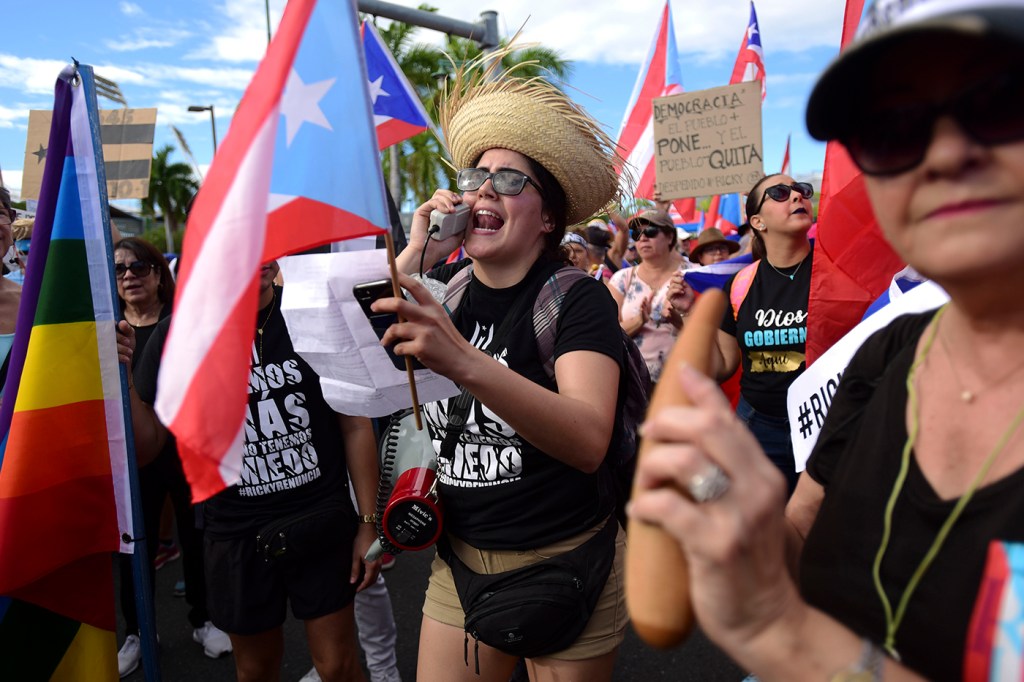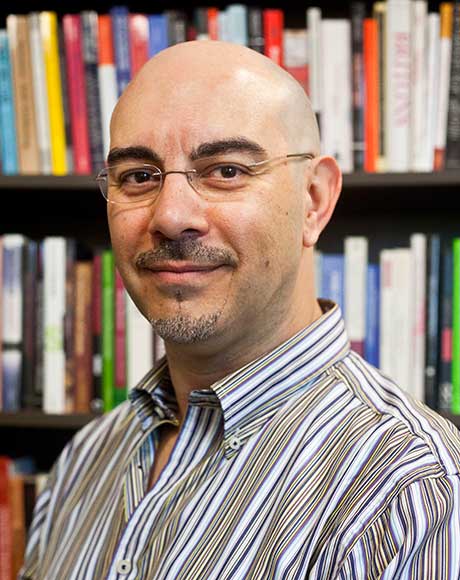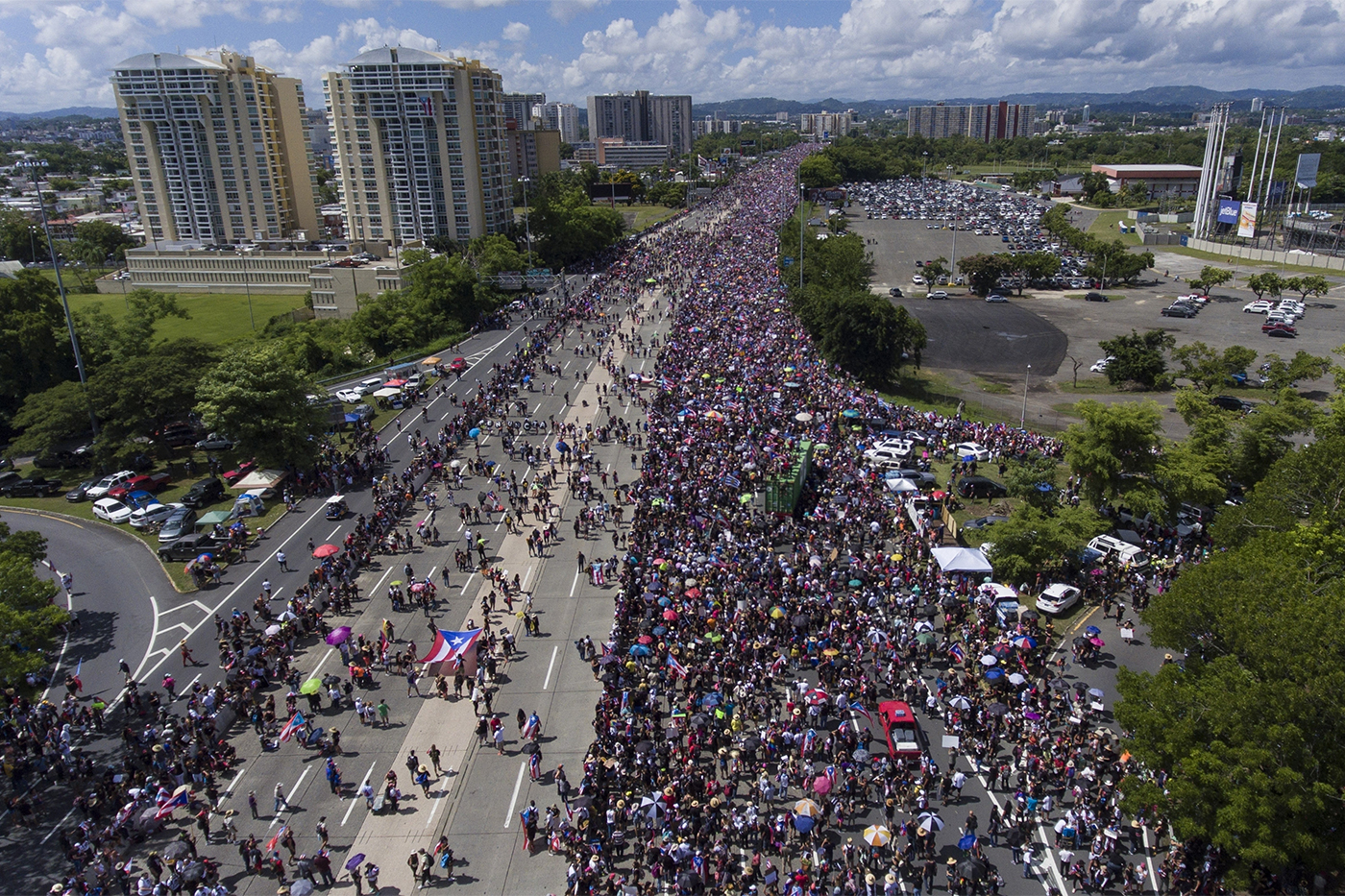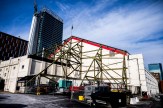Protests in Puerto Rico won’t solve the US territory’s problems caused by Hurricane Maria, government corruption, and bankruptcy, says Northeastern University professor

Hundreds of thousands of people filled the streets of Puerto Rico Monday to demand the resignation of Gov. Ricardo Rosselló, whose profane private messages mocking women, people with disabilities, and victims of Hurricane Maria were leaked to the public and triggered a spontaneous eruption of protests across the U.S. territory.
Rosselló announced Sunday that he will not step down from the governorship, saying in a Facebook Live video that “all of my time must be dedicated to the responsibilities that I took on as governor.”

Amilcar Barreto a professor of cultures, societies, and global studies at Northeastern, says the challenges presented by Hurricane Maria, rampant corruption among top leaders in the government, and the ongoing financial crisis in Puerto Rico have created a dire situation in the U.S. territory. Photo courtesy of Amilcar Barreto
But even if he did step down, Rosselló’s resignation won’t solve Puerto Rico’s problems, says Amílcar Barreto, a professor of cultures, societies, and global studies at Northeastern who studies politics in Puerto Rico. He says the challenges presented by Hurricane Maria, rampant corruption among top leaders in the government, and the ongoing financial crisis in Puerto Rico have created a dire situation in the U.S. territory that will eventually lead hundreds of thousands of Puerto Ricans to leave for the mainland.
“I honestly don’t know if there is a resolution,” says Barreto, who was born in Puerto Rico. “The economy is getting bad, getting worse. There’s a mass exodus off island, with half of it to central Florida. So everything is not going in a good direction, to put it mildly. And now, the chat comes out. This was the last straw.”
Puerto Ricans have been frustrated for a long time, Barreto says. The island territory has been bankrupt since May 2017, when it was revealed that the Puerto Rican government owed $74 billion in debts and more than $49 billion in unfunded pensions. Hurricane Maria, which struck in September 2017, devastated the island and killed over 4,000 people. And last week, federal authorities arrested and charged six top officials within the Puerto Rican government for steering $15.5 million in federal contracts to politically connected consultants.
Monday’s protests marked the largest demonstrations in Puerto Rico in 20 years, says Barreto.
“These protests over the past couple of days have included Puerto Ricans from all walks of life, all sorts of political persuasions, and even members of Rosselló’s own political party,” he says. “Basically it was just a sea of humanity. It’s virtually unprecedented.”

Demonstrators march on Las Americas highway demanding the resignation of Gov. Ricardo Rosselló, in San Juan, Puerto Rico, Monday, July 22, 2019. AP Photo/Gianfranco Gaglione
Barreto says that he expects “more protests, more chaos” in Puerto Rico in the near future. He says the political and financial situation in the island territory is complicated by the Financial Oversight Board, which was implemented by the U.S. government in 2016 to control the allocation of funds across the island and manage the debt. The solution to quelling the unrest in Puerto Rico will require the help of the federal government and this fiscal control board, he says.
“The steering wheel is in the hands of the federal government,” Barreto says. “The federal government basically stripped Puerto Rico of its fiscal autonomy, and it’s now in the hands of an appointed fiscal review board over the elected government of Puerto Rico. Ultimately, any way out of this financial pit is going to be down the tracks laid by the federal government.”
For media inquiries, please contact Marirose Sartoretto at m.sartoretto@northeastern.edu or 617-373-5718.





